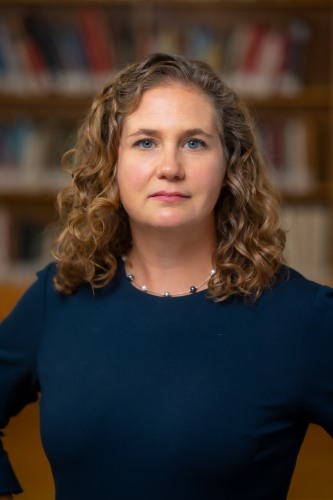---

Jennifer Nuzzo, DrPH
Biography
Jennifer Nuzzo is a nationally and globally recognized leader on global health security, public health preparedness and response, and health systems resilience. Together with colleagues from the Nuclear Threat Initiative and Economist Impact, she co-leads the development of the first-ever Global Health Security Index, which benchmarks 195 countries’ public health and healthcare capacities and capabilities, their commitment to international norms and global health security financing, and socioeconomic, political, and environmental risk environments.
In addition to her scholarly work, Nuzzo regularly advises national governments and for-profit and nonprofit organizations on pandemic preparedness and response, including during the COVID-19 pandemic. She is a pandemic advisor for Impact Assets’ Stop the Spread Campaign. She is currently a member of the National Academies of Sciences, Engineering and Medicine’s (NASEM) Standing Committee for the Centers for Disease Control and Prevention (CDC) Center for Preparedness and Response.
Her articles have appeared in The New York Times, The Washington Post, USA Today, Fox News, Politico, The Hill, and The Boston Globe. She was featured in Debunking Borat, a television series on Amazon Prime Video, and her work was featured on Last Week Tonight with John Oliver. She served as COVID Advisor for the Borat Subsequent Moviefilm.
Recent News
---
Their goal is to design a flu shot that will confer the best protection for the next flu season —starting in the fall of 2026. Each day, they pore over reams of data — about how the virus is evolving worldwide, how well last year's shot performed, and which strains might be easiest to mass produce for a vaccine.
And because of these treacherous conditions, Rhode Island’s wildlife rehabilitation clinics are reporting record numbers of sick and injured birds.
---
Hospitals fighting measles confront a challenge: Few doctors have seen it before
The boys sat in one waiting room and then another. Two hours and 20 minutes passed before the two were isolated, according to Centers for Medicare & Medicaid Services records obtained by KFF Health News. Then two more hours ticked by.
---
Collier County measles outbreak at 12 cases, all students at Ave Maria University
This outbreak joins ones already existing and growing in Texas and South Carolina with hundreds of cases. Those outbreaks are a threat to the United States keeping its measles-free status.
Starting Jan. 29, measles cases began showing up at Ave Maria University.
--
A ‘shadow CDC’ is scrambling to fill gaps in public health data
---
Jennifer Nuzzo in the News
See all Pandemic Center newsRFK Jr. overhauls vaccine advisory panel; doctor calls it 'dark day for public health'
The Health and Human Services secretary announced Monday in a Wall Street Journal opinion article that he was replacing all 17 members of the Advisory Committee on Immunization Practices.
The ACIP is an expert scientific panel that develops vaccine recommendations for the Centers for Disease Control and Prevention.
The immunization schedule, or list of recommended shots, for kids is based on the panel’s advice to the CDC.
The ACIP recommendations have consequences for which vaccines insurers are willing to cover and which vaccines doctors recommend to their patients.
---
Are we ready?
CFR 4/2 Global Affairs Expert Webinar: Complex Public Health Emergencies
This work represents the views and opinions solely of the author. The Council on Foreign Relations is an independent, nonpartisan membership organization, think tank, and publisher, and takes no institutional positions on matters of policy.